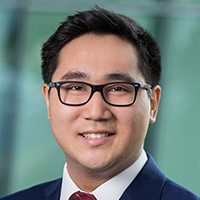Singapore’s only natural resource is its people – local as well as international. As such, the quality of the country’s manpower is critical for sustaining and advancing a thriving nation. Singapore’s tertiary institutions not only groom Singaporeans to be academically strong but they also attract international talent – including students and scholars – interested in making Singapore their home. Many scholars from top universities around the world are drawn to Singapore because of its vibrant and diverse community, strategic location, as well as cutting-edge research.
Some may consider the investment involved in the recruitment of young scholars and in research a misallocation of public resources. They argue that by focusing on research prowess and international rankings, a direct consequence is lower teaching quality. There is also a perception that the hiring of international academics would crowd out Singaporean academics who are not awarded tenure despite meeting previous publication requirements.
But these arguments are built on flawed premises. First, research and teaching are not mutually exclusive. Second, participating in the global market for the recruitment of academics is likely the best outcome for Singaporean society. And third, high rankings bring positive externalities like more industry collaboration, better morale, and enhanced global profile.
Research and teaching are complementary
The argument that the recruitment of research-active professors means Singaporean students suffer from inferior teaching is no doubt derived from the time budget constraint that a professor’s time consists of research, teaching and personal life. Taking the latter as given, more time dedicated to research necessitates less time dedicated to teaching. But this misses a crucial point.
Great researchers make great teachers as well. At the National University of Singapore (NUS), the fraction of research-track faculty who win teaching awards do not dramatically differ from those of teaching-track faculty. Numerous research-track professors are recognised not only for their excellent teaching skills but also for writing internationally-adopted textbooks. A comparative advantage in research does not mean an absolute disadvantage in teaching.
Moreover, elective and advanced classes typically involve bringing students’ knowledge to the frontier of a field’s development. Who better to do that than someone actually working on expanding the frontier themselves?
Another argument is that international professors lack local context. But research on local topics do not need to be covered solely by Singaporeans. At NUS Business School, many non-Singaporean professors study a host of Singaporean-related issues including tax and subsidy schemes, public transport, and mobile payments that are not only published in top-tier academic journals but also bear policy implications. Nationality does not prejudice research.
In fact, international faculty who join Singaporean universities do not just bring their own labour; they bring their collaborators as well. This positive spillover takes the form of joint organising of conferences, seminar presentations, or academic visits with world-renown institutions. This leads to a virtuous cycle of higher quality research, international relevance, and a more global perspective for both faculty and students.
Affirmative action
As universities in Singapore become more competitive, the bar for tenure rises. This is simply because would-be professors from top global universities are increasingly willing to come to Singapore.
Participating in the open market for academics means that while NUS sets salaries for professors, they only do so in response to the global market. In fact, this competitive market equilibrium actually results in lower professor salaries since supply is larger than if Singaporean universities only hired Singaporeans of the same caliber.
The academic market is large and global; junior professors who fail to get tenure at NUS can move to other universities or switch to a non-research-track role.
Implementing an affirmative action policy for Singaporean professors will run counter to Singapore’s meritocracy system. This is not because Singaporean professors are inferior to foreigners, but simply because there are not enough qualified Singaporean candidates. Although Singaporeans are already overrepresented in advanced degrees globally, the Singaporean supply of PhDs is still small as a fraction of global PhDs. Further, demand for university education is rising. The skill premium is increasing globally as is the university participation rates among Singaporean students. NUS has an enrollment of 30,098 this academic year compared to 25,190 a decade earlier.
Rankings consider more than research
Finally, international rankings do not consider only research. Both the Times Higher Education and QS (Quacquarelli Symonds) rankings include other facets such as teaching, international reputation as judged by other universities and employers, faculty-to-student ratio, and diversity.
By these metrics, Singaporean universities have risen through the global rankings quickly. In 2011, Nanyang Technological University (NTU) was 174th in Times Higher Education’s World University Rankings. Now, it is ranked 51st.
These rankings matter beyond bragging rights. Industry would only want to engage with local universities only if they perceive that there are gains from collaboration. In order to satisfy Education Minister Ong Ye Kung’s call for more “institutional collaboration”, the universities should be ranked highly in the first place. In fact, as part of the introduction of Alibaba’s PhD program with NTU, Chief Technology Officer Jeff Zhang stated that one of Singapore’s strategic advantages was its “strong research tradition”.
Having a globally ranked university also fosters school spirit and increases cohesion among alumni and the university community. Being internationally renowned instills pride among NUS students and alumni worldwide.
These rankings do not just affect the universities themselves but also improves the international image of Singapore as a whole, not unlike Singapore’s portrayal in the movie Crazy Rich Asians or the government’s decision to spend S$20 million to host the 2018 summit between Donald Trump and Kim Jong-Un.
As a foreigner, I welcome the opportunity to compete with other great candidates from around the world for a chance to serve at NUS.
If it so happens that my research or teaching abilities fall short of the competitive threshold for tenure, NUS should get rid of me with no hesitation. They should recruit a better candidate, regardless of race, language or religion, who can better contribute to student education, research, international collaboration and public policy discussions.




